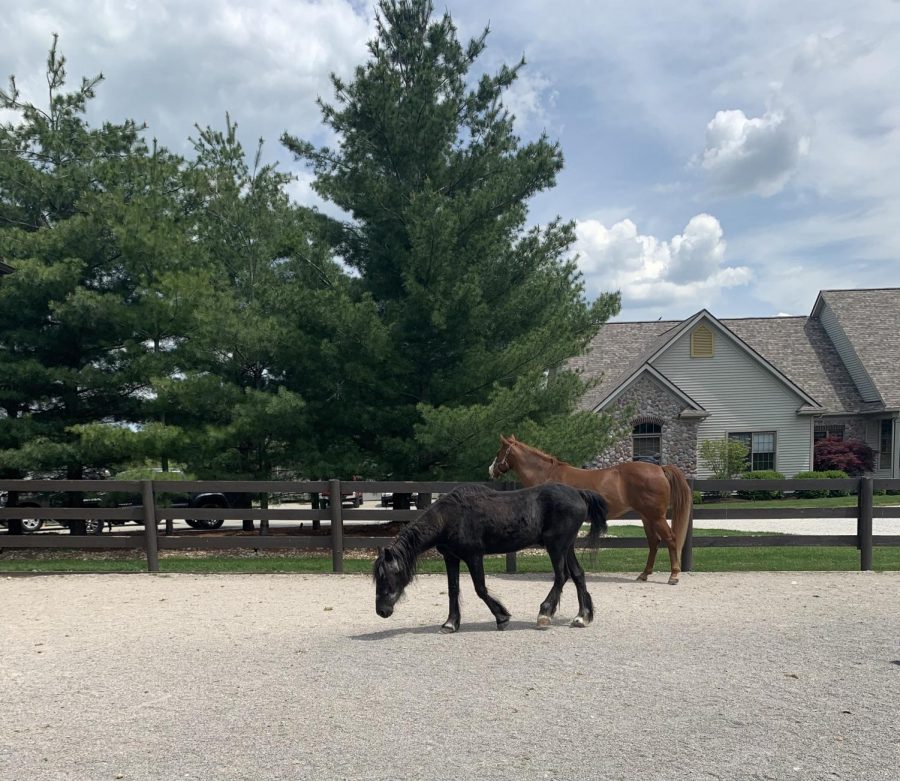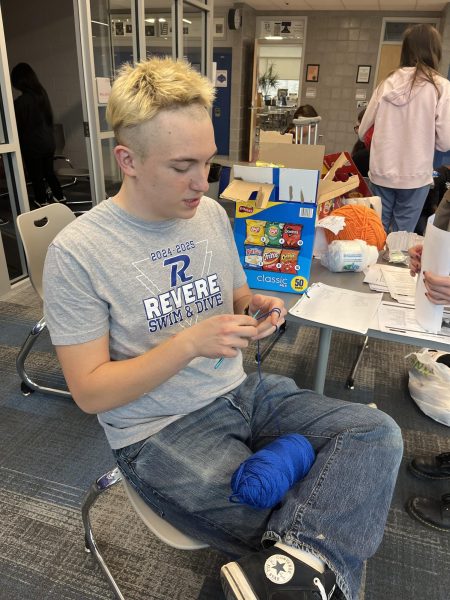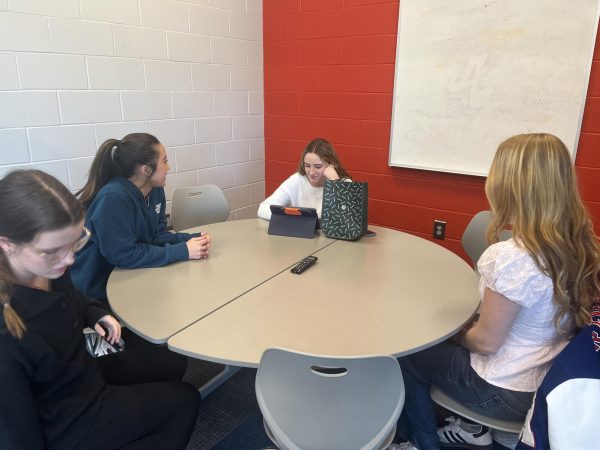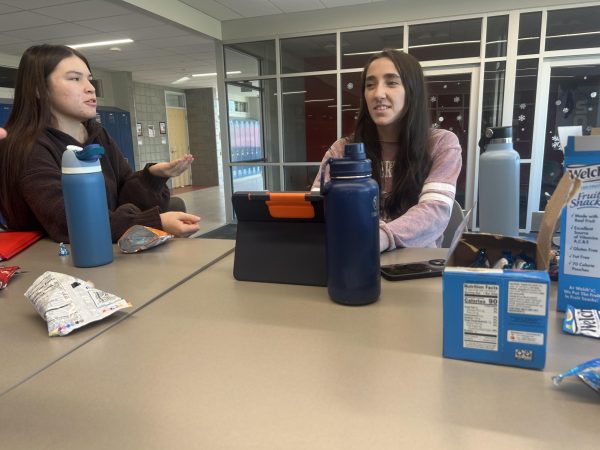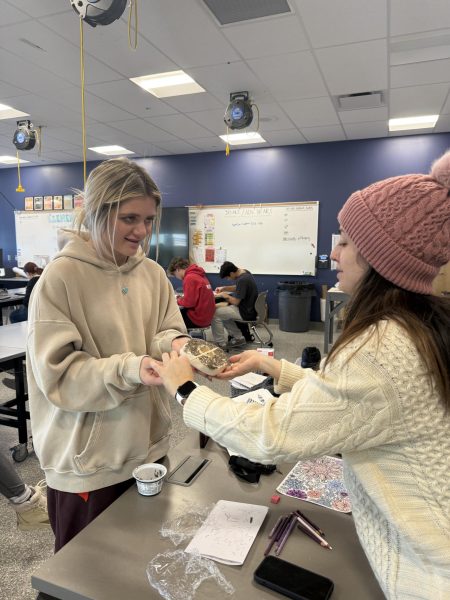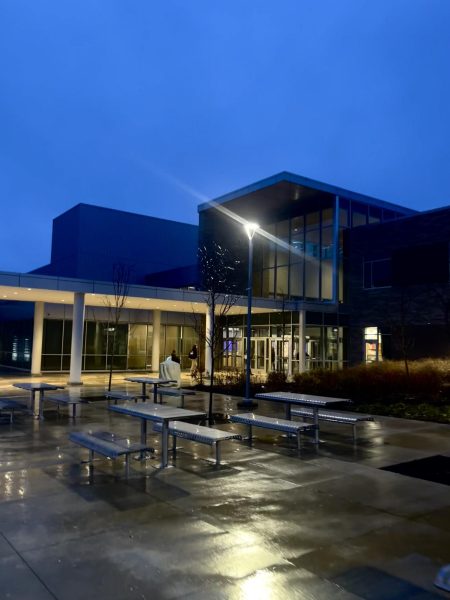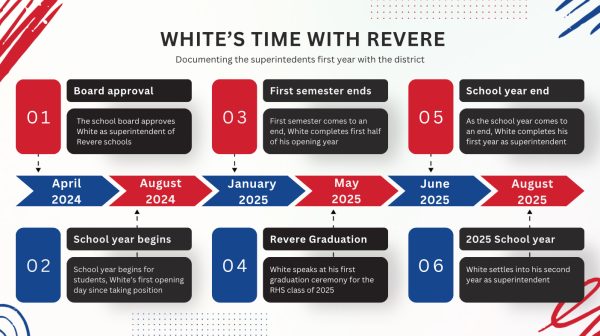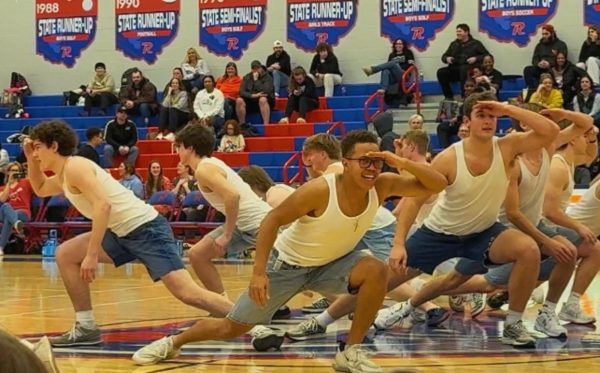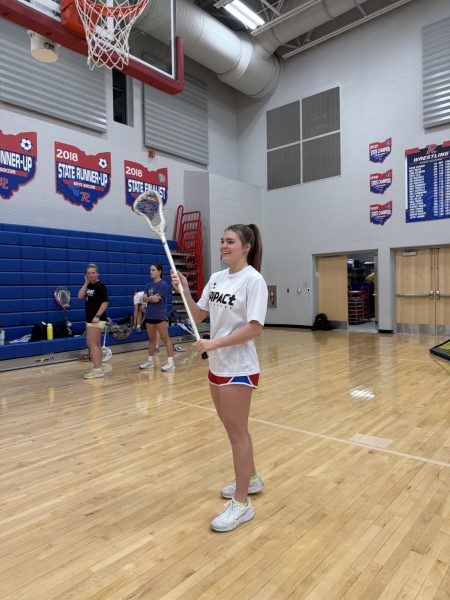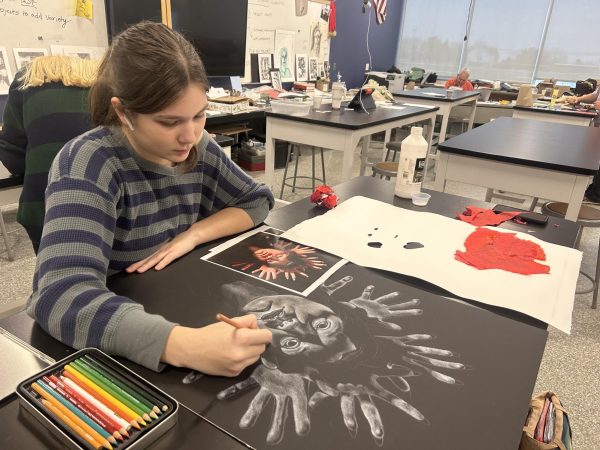Revere partners with Hope Meadows therapeutic equestrian program
Horses Pocket and Penny in their pasture.
Revere High School has partnered with the Hope Meadows therapeutic equestrian program to provide students with emotional support and healing.
Principal Philip King, who helped create and oversee the partnership, explained the program.
“The staff pairs emotional support training for students [in addition to] allowing them to work with horses, which provides them with a sense of calm and connection,” King said.
He discussed how the program came to Revere.
“We partnered with them back in December [of 2020], when Mrs. [Emily] Rion and Mrs. [Bonnie] Simonelli reached out to [Hope Meadows]. We then partnered with the Revere Schools Foundation for monetary support,” King said.
At-Risk Student Coordinator Bonnie Simonelli explained how equine-based emotional therapy helps students.
“Horses are very intuitive and calming. Some kids have a lot of anxiety around testing and other things; that’s why they were picked for the program,” Simonelli said.
Twice a week, Revere Middle School and High School send their respective groups of students to Misty Acres, a barn located in Bath and just minutes away from the schools.
Karen Priemer, the owner of Misty Acres and the equine
specialist for Bath’s Hope Meadows, explained her role in the program.
“Hope Meadows uses my herd of six horses for therapeutic equine work. I had two children go through Revere and had some contact with Bonnie [Simonelli]. She brought a few counselors to us from the elementary, middle and high schools and we [worked to] put something together for the middle and high schoolers,” Priemer said.
In addition to an equine specialist, each Hope Meadows team has
a clinical specialist. At the Bath location, this role belongs to Tiffany Ingersoll.
“Equine assisted therapy can be so powerful in the learning aspect; I’m there to make sure that [participants can receive] extra help if they need it,” Ingersoll said.
Ingersoll also explained the two schools of equine therapy used in the Hope Meadows program.
“The Equine Assisted Guiding and Learning Association (EAGALA) [certifies] you to practice [equine assisted therapy]. They’re all groundwork, a more metaphorical approach. [Participants] build in the arena with noodles, buckets and tarps [before] guiding the horses through it. We then ask questions about how the horses reacted to what they built,” Ingersoll said.
In addition, Ingersoll also practices Natural Lifemanship with participants.
“Natural Lifemanship is a trauma-informed equine assisted psychotherapy program. It’s more about the relationship and less about using the horse as a mirror. The ways horses communicate are healthy ways for us to communicate. The individual works with one horse on building a relationship, on self-regulation and processing trauma,” Ingersoll said.
Hope Meadows Equine Director Valorie Gill further explained the benefits of communicating with horses.
“The way that horses interact and react, kids can figure it out themselves. Humans may be processing their own feelings; they may not give you that feedback. Horses give it immediately; it’s instantaneous,” Gill said.
Ingersoll agreed.
“Humans fib. They say they’re fine when they’re not, but horses won’t lie to you. We might not always know how to express our emotions, but they do,” Ingersoll said.
Simonelli reported having already seen the program’s positive impact among the students.
“It’s been very successful; [the kids] love it. I hope we can keep this going [in the future]; I know it has had a positive impact,” Simonelli said.
Ingersoll has also noticed a positive change in the students.
“The kids want to continue. There’s so much we can do here; six weeks is the tip of the iceberg. We can continue to develop these skills for years. Emotional intelligence is so important nowadays, [as is] being in genuine, connected relationships. I think it shocked some of the students, how connected you could feel [to the horses],” Ingersoll said.
Priemer agreed, explaining what drew her to the Hope Meadows program initially.
“[Our family] created our barn as a sanctuary, to establish our intention to use the things that have happened in our lives to help others connect with themselves and [the people around them]. Hope Meadows aligned with us in that intention. We all had troubles when we were younger, and we all wish we’d had
something like this to make things smoother,” Priemer said.
Gill commented further on this.
“For kids who don’t have perfect home lives, this might be the first time in their lives that they have a deep, safe, healthy connection. They’ll have these skills for a healthy relationship for the rest of their lives,” Gill said.

